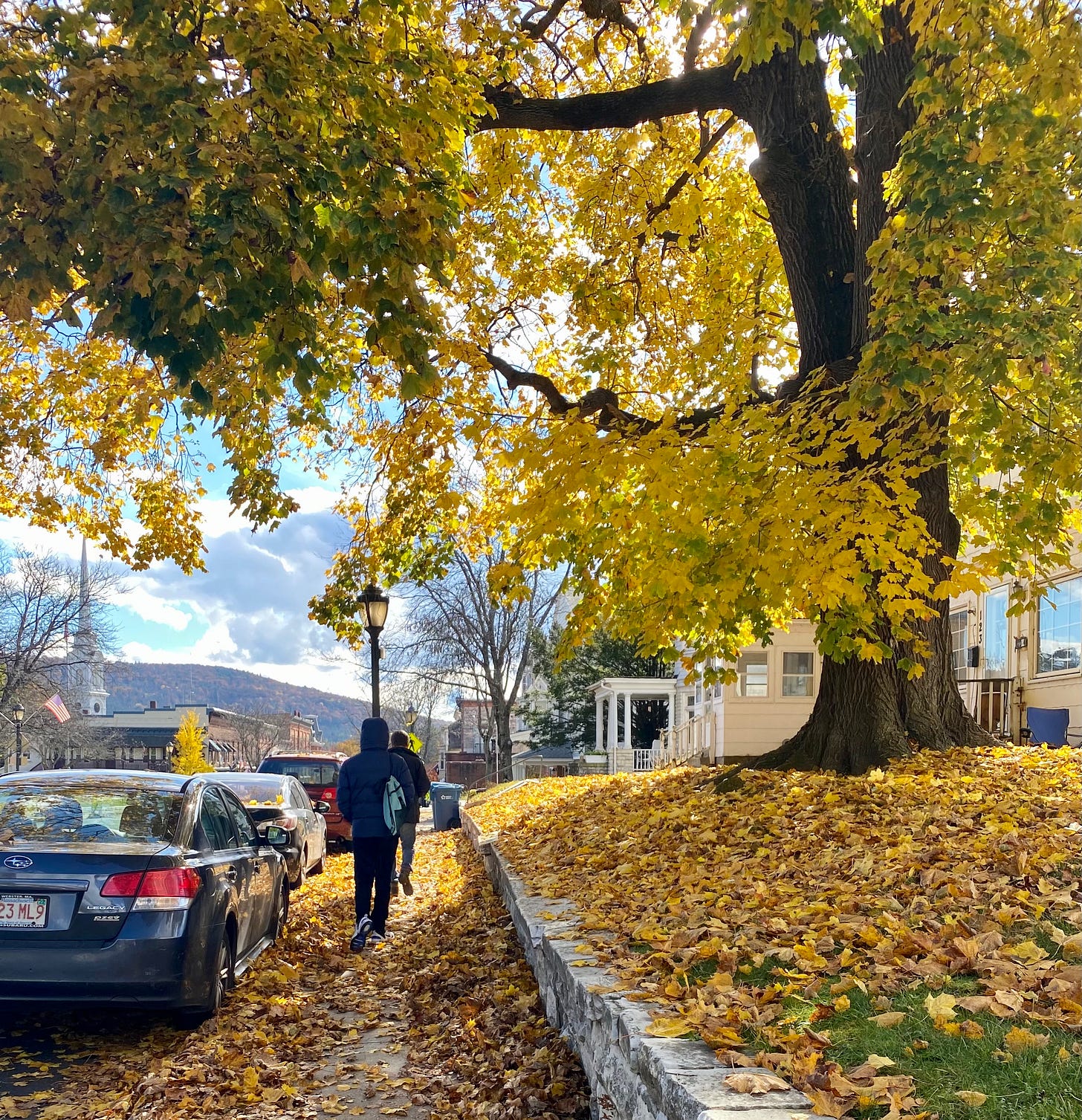Sketching out The Post-High School Road Map
Information about college and programs for autistic kids that every parent should know
When Ian graduated from high school, we had no plan. There was never any plan. We knew that he was good at computers, and that some big companies are recruiting autistic people, but beyond that, we had no clue. How would he gain those computer skills? Where should he go to school for that? Do any of those places support people with autism? Did he have all the other academic skills necessary to gain entrance to those schools? Could he handle a residential college? I had lists and lists of questions and nobody knew the answers.
Legally, families and schools should be working together to create a post-graduation plan for the student beginning at age 14. Every IEP should have a concrete plan for the student’s future and a list of steps that need to be taken in order to reach that goal. A student’s IEP should begin with the transition plan and individual goals should be built around that end point. If your child wants to be an auto-mechanic, for example, then what skills should they master in high school, so they can attend (and succeed) at a car repair school after high school?
In the special education world, there’s theory, and then there’s reality.
Why didn’t any school personnel help me with any of my many questions? Because guidance counselors are not trained or expected to know anything about community colleges or trade schools. (I wrote a whole lot about the limitations of guidance counselors in this article.) They certainly don’t know anything about special education options at those schools.
And folks in the special education department don’t know anything about options for the higher functioning kids. They funnel the neurotypical kids with learning issues into the trades; they go from the football team to electrician school. The kids with very complicated developmental and intellectual disorders are slated for a state-funded day programs and sheltered work sites. But those options don’t work for higher functioning autistic kids; they are too weak for the manual trades, too quirky for college, and too smart for adult daycare.
While Ian’s high school did not prepare us for life after high school, it doesn’t mean that there is nothing out there. There are options. But it has taken me nearly a full year of full time research, as well as input from very expensive outside experts, to really map out this territory. Do I know everything after all this research, travel, and money? Absolutely not. But I am still way smarter than I was a year ago.
Last week, I stressed that all special education students should enroll in 18-21 programs through their local school district, especially if they aren’t ready for college, trade school, or a full time job. Sometimes parents need a little more time to create a better plan for their student, so the 18-21 program can be a parking place before the next destination. I certainly needed this time.
In the past year, I talked to experts about private transition programs that have greater expertise and greater resources than the typical home district. We took Ian on tours of two residential programs that focus on independent living skills in Western Massachusetts and Connecticut. (The picture above was from one of our trips.) We found one great private (not residential) program that is literally around the block from our house.
Because these private programs focus on particular populations of kids, you should absolute insist that the district to conduct complete evaluations in your student’s senior year. Some programs are exclusively for kids with IQ’s under 90; others specialize in students with IQ’s over 90.
Some programs function as a private add-ons to the local community college or four-year school. They provide the autistic support — executive functioning, social skills groups, academic tutoring — that doesn’t exist (but should) on a college campus. It’s ridiculous that parents of autistic kids have to pay as much as $20,000 extra to get accommodations that should be free, but that’s how it is.
I am currently supporting Ian as he slowly inches his way into community college. We’re calling this “mom support.” I wrote a bit about how we’ve been helping, but I’ll talk a lot more about this later.
Very recently, with the support of federal dollars, some colleges created special programs specifically for students with intellectual and developmental disabilities. Students there don’t really take classes with the other students, but they are still part of the campus life and work with supports in the library or dining hall. So many opened up this past year that it’s really hard to get a grasp of this brand new, exciting landscape.
Few trade schools specialize in kids with autism. Trade schools tend to specialize in the typical, but slow kids, the dyslexia kids, those with mild behavioral problems, and regular kids who were under-educated in terrible school districts. They don’t have the tools to handle kids with OCD or have sensory issues, even if the students are very bright. This should change.
It’s also possible to layer options. A student could start at an 18-21 program, then move onto a community college with “mom support” or with the support of a private group, and then move to onto a four-year college that has a strong autism support system. Educating kids, like ours, is a marathon, not a sprint.
So, I sketched out the basic roadmap of post-high school options. Rich people pay experts a lot of money for these secrets, but the rest of us have to muddle through. There really should be a foundation-supported website that provides this information to parents, but there’s not.
LINKS
A Review of Judge Ketanji Brown Jackson’s Disability and Civil Rights Record
‘I sleep in my wheelchair’: Hudson Valley residents struggle to find home care









